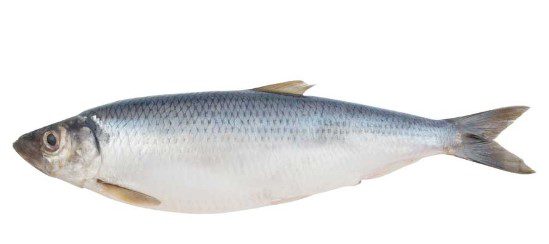

Herring can be a great addition to a dog’s diet due to its nutrient-dense qualities and low level of mercury. It is abundant in omega-3 fatty acids, protein, and vitamin D. However, it is crucial to properly clean and cook herring prior to feeding as it carries the risk of containing parasites and herring worm.
Herring can provide your dog with a host of health benefits, from an improved skin and coat quality to strengthened muscles, bones, and teeth. Omega-3 fatty acids which are found in herring also support heart health.
Raw herring can contain parasites and herring worm which could cause stomach upset or vomiting. Whole herring is also a choking hazard for small dogs, and its thin bones can puncture a dog’s intestines. Herring can also contain bacteria and other pathogens.
Choose fresh herring for your dog, making sure to remove all bones and cut into small pieces to prevent choking. Cook herring thoroughly to avoid any bacterial or pathogen contamination. Salted, smoked, or pickled herring should be avoided as they contain high levels of sodium. Serve herring to your dog in moderation.
Herring is a delicious and nutrient-rich food that can be incorporated into a dog’s diet in moderation. It is also known as sea herring, Atlantic herring, or Norwegian herring, and its origins can be tracked back to the northern Atlantic and Pacific oceans. It’s sparsely distributed along the American coast, primarily near Canada and Alaska. Herring is packed with beneficial nutrients such as vitamins, protein, and omega-3 fatty acids, which are great for the heart, coat health, and stronger muscles. Despite the variety of benefits herring can bring to a dog’s diet, it’s important to take precautions as it carries the risk of containing parasites or herring worm. It’s wise to always thoroughly clean and cook herring before feeding to avoid any contamination. Also, as it can be a choking hazard for small dogs, it’s essential to remove bones and cut the herring into small pieces to ensure it is safe for your pup. It’s best to avoid salted, smoked, or pickled herring as they contain high amounts of sodium.
Are there any other options to feed my pet with omega-3 fatty acids apart from herring? Yes, besides herring, other natural sources of omega-3 fatty acids for dogs are salmon, anchovies, mackerel, and flaxseed. Low-mercury alternatives like sardines, scallops, and wild-caught tuna are also great options to consider.
If you have already given your pet herring, we'd love to hear about how your pup has been enjoying it! Do share with us your pet’s experiences in the comments section below. It takes a village to raise a pup, and we are all here to learn and support one another. Wishing all the furry buddies a happy and balanced diet!